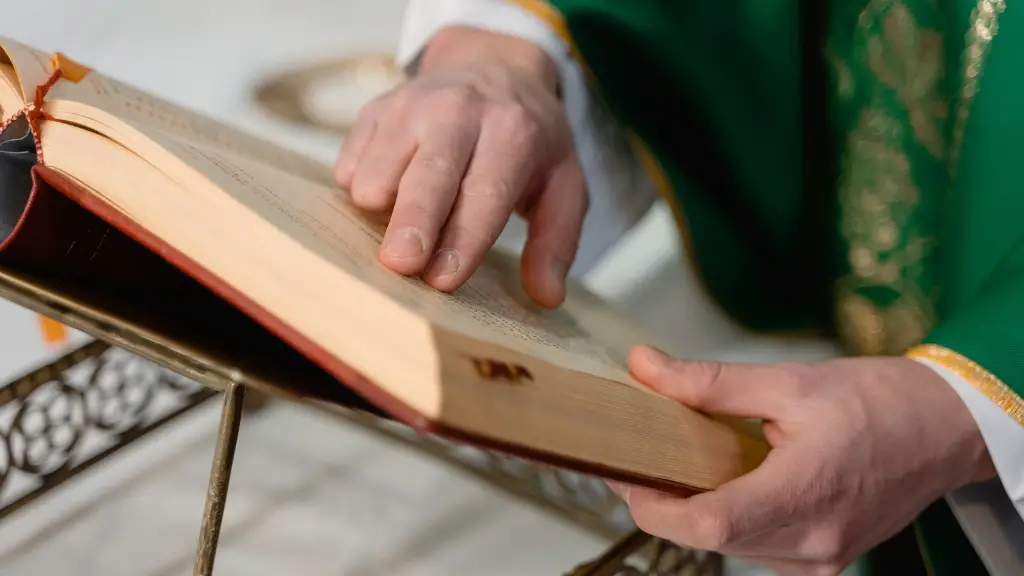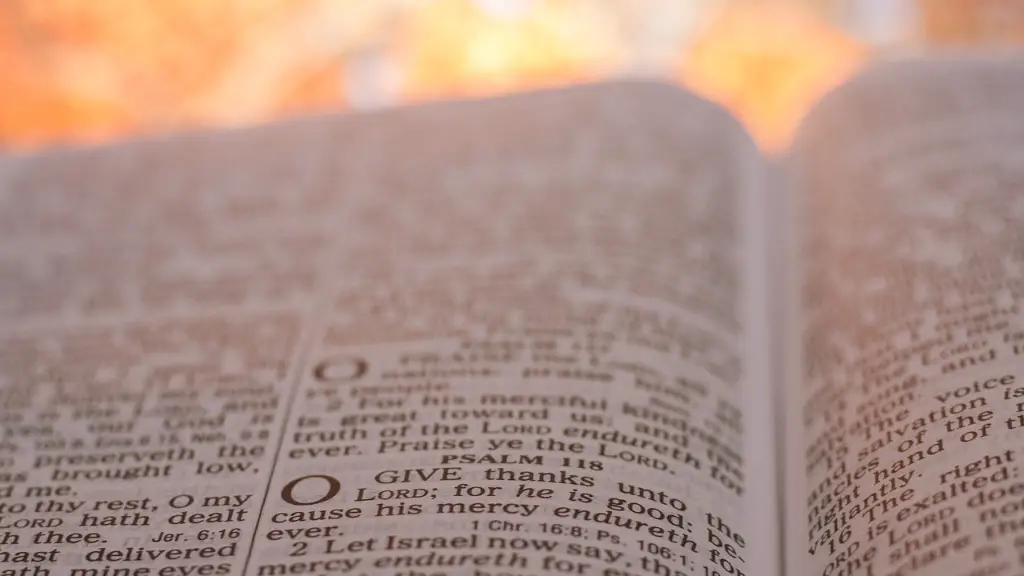What Is Purgatory?
Purgatory is an intermediate state between heaven and hell in some religions, usually Catholicism. It is meant as a form of purification for the souls of the dead who are imperfectly purified. The doctrine of Purgatory is unique to Catholic Christianity and its teaching on Purgatory is derived from two main sources: Sacred Scripture and Sacred Tradition.
How Many Times Is Purgatory Mentioned In The Bible?
The term “purgatory” does not appear in the Bible, and the word is never used to refer to the intermediate state of cleansing for the souls of the dead. However, there are many passages in the Bible that suggest that some sort of intermediate state does exist after death. For instance, the Gospel of Matthew 12:32 speaks of the existence of sin and the prospect of purification after death, “Whoever speaks a word against the Son of Man will be forgiven; but whoever blasphemes against the Holy Spirit will not be forgiven, either in this world or the next world.”
The Catholic Understanding Of Purgatory
The Catholic understanding of Purgatory is based on the belief that after a person dies in grace, that person must still face the consequences of their sins and be purified before entering Heaven. Purgatory is thought of as a place of mercy, where a soul can be completely cleansed of sin and be ready for Heaven. This cleansing process is thought to involve both pains and joys which differ from person to person and it may take from minutes to centuries to be completed, depending on the person’s need for purification.
The Bible And The Catholic Understanding Of Purgatory
The Bible does not explicitly affirm the Catholic Church’s teaching on Purgatory. However, there are numerous references to the idea of a purification process for the dead. Many of the passages use figurative language to describe the process of purification, as in the parable of Lazarus and the Rich Man (Luke 16:19-31). This suggests a gradual purification process of the soul, taking place in the afterlife.
Early Christian Writings On Purgatory
In addition to the Bible, there are other sources of information on this topic. Early Christian writers, such as Tertullian, Cyprian, Augustine, and Jerome all make mention of a purification process of the souls of the dead, as did many of the Church Fathers. These early Christians used the example of King David, who made mention of a purification process for the souls of the dead (2 Samuel 12:23). This suggests that Christians were aware of some form of intermediate cleansing for souls in between death and the ultimate judgment of God.
Doctrine Of Purgatory In The Middle Ages
The doctrine of Purgatory was developed and elaborated in the Middle Ages. During this period, theologians and Church Fathers began to understand the concept in greater detail, and developed the practice of praying for the souls of the deceased in Purgatory. This practice was based on the belief that the souls of the dead were still in need of purification and could benefit from the prayers of those still alive.
The doctrine of Purgatory Today
Today, the doctrine of Purgatory is still a part of Catholic belief. Although the term “purgatory” is not found in the Bible, Catholic tradition holds that the concept of a purifying, intermediate state of existence is taught in the Bible. Catholic doctrine holds that prayers and offerings can benefit the souls of the deceased as they undergo this purifying process.
Where Is Purgatory Located?
The location of Purgatory is unclear, as is the length of the process of purification. Some theologians believe it is a place beyond Earth, perhaps in the realm of Heaven or an intermediate realm between Heaven and Hell. Others believe it is a state of being on Earth, or even within the individual’s soul itself.
What Is the Duration Of Purgatory?
The duration of the purification process of Purgatory is also uncertain. Again, Catholic tradition holds that the process can take minutes, days, years, or even centuries, depending on the individual’s need. Regardless of the length, the purification process is thought to provide the dead soul with the necessary purification for ultimate entrance into Heaven.
Is Purgatory Permanent?
No, purgatory is not a permanent state. It is thought of as a temporary place of purification for the souls of the dead, in which the soul is cleansed of any sins or wrongs it may have committed in life. The process of purification is thought to be finite, and ultimately leads the soul to the heavenly reward.
What Happens In Purgatory?
The process of purification in Purgatory has been described as a purifying fire, in which the soul is purified through a process of purging and cleansing. This cleansing process is believed to involve both pains and joys, and it is thought to result in greater holiness and greater perfection of the soul.
Conclusion Of Purgatory
The Catholic Church believes that Purgatory is a form of purification after death, in which the soul is cleansed and prepared for entrance into Heaven. While the term “purgatory” is not used in the Bible, there are numerous passages that suggest the possibility of a temporary, intermediate state for the dead in which some form of purifying process takes place. For Catholics, the doctrine of Purgatory holds that prayers and offerings made on behalf of the deceased can benefit the soul as it undergoes this purification process.



